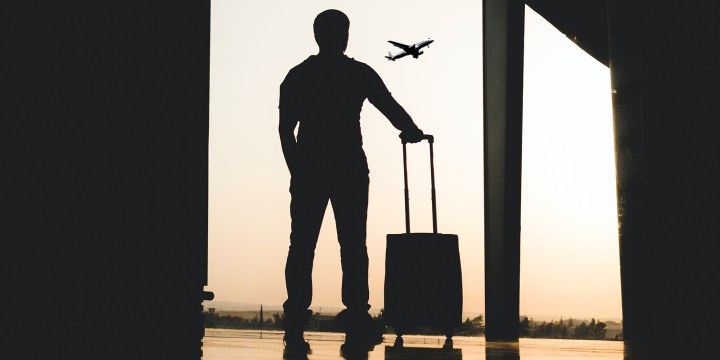BUSINESS REFLECTION
After the Bell: Airline investing happens on a wing and a prayer

Some great investments hide in plane sight. (Sorry.) Airline stocks around the world have taken off. (Another bad joke.) And from here, it’s going to be plane sailing. (Okay, I’ll stop now.)
Amazingly, international airline stocks are looking buoyant at the moment. The global market leader is the US company Delta, and its share price is up by 50% year-to-date. Ryanair, which operates mainly in Europe, is about the same. Singapore Airlines, flying mainly in Asia, is up by 30%.
When it’s announced that even SAA could make a profit this year, you know something big has changed. But what?
The world’s investor-in-chief, Warren Buffett, has been famously wry and funny over the years about investing in airlines. In 2007, he said if a farsighted capitalist had been present at Kitty Hawk, he would have done his successors a huge favour by shooting down Orville Wright. Yet Buffett did change his mind later and actually loaded up on airline stocks.
He argues that the airline business is one of the worst kinds of business to invest in because when it’s growing, it requires significant capital to maintain that growth. But the increase in capital doesn’t result in the requisite increase in returns.
Disruption
The airline industry around the world was massively disrupted in the early 1990s by the rapid growth of low-cost carriers which undercut the fares of legacy carriers. The legacy carriers were forced to match those prices to prevent their customer bases from flitting away. This led to big losses across the industry.
Buffett called this the “kamikaze pricing tactics of certain carriers”. It illustrated an important truth, Buffett said in 1990: that when a business is selling a commodity-type product, it’s impossible to be a lot smarter than your dumbest competitor. The year 1991/92 was the nadir of the industry, with five airlines in the US alone going bankrupt.
But then in around 2010, everything changed. For the next decade, airlines around the world managed to stay consistently profitable, SAA excepting. What changed?
Lots, as it turns out. There was quite a bit of consolidation; countries generally stopped propping up their national airlines, particularly in Europe. But the biggest change was that the industry stabilised and air travel increased at an extraordinary speed. And then, just as it looked as though it was all going to be plain sailing, Covid hit, and airlines got massacred.
What we are seeing now is not much more than a recovery in share prices to where they hovered at the pre-pandemic level. Delta was trading at around $60/share just before Covid and is trading at $50 now.
There has been a “revenge travel” period when travellers who were cooped up during Covid spread their wings. But the interesting thing is that this momentum has continuity. The International Air Transport Association (Iata) recently announced that the industry’s net profits are expected to reach $9.8-billion in 2023, which is more than double the previous forecast of $4.7-billion made at the start of the year. That is more or less the 2019 level, and it’s matched by total travellers: some 4.35 billion people are expected to travel in 2023, which is closing in on the 4.54 billion who flew in 2019.
Southern Africa lags
The one disappointing thing about the rebound is that southern Africa is lagging.
“Longstanding structural and profitability challenges in southern Africa continued to affect markets in the region, which lagged 2019 levels of aviation activity,” Iata says. But there has been a big improvement compared with the last quarter of 2022.
I suspect the important question is whether working from home has affected and will affect the airline industry positively or negatively. At the moment, it seems that it has not, but airline travel is changing in nature, since business travel is down but recreational travel is up. That suggests there is quite a bit of working not from home but somewhere other than the office, which is balancing the overall scale.
Investing in airline stocks is still somewhat of a commodity business, so it’s going to remain, how should we say, up and down. But it’s good to see the industry at least finding its way back to pre-Covid levels and not in free fall. DM




















 Become an Insider
Become an Insider
Was interested to see the spelling in “plane sailing”. For me that has always be the correct version.